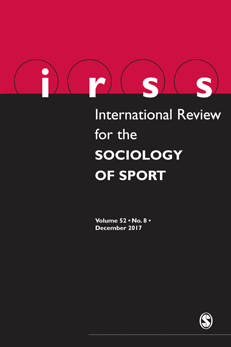Research.
The politics of pleasure in girl-centred sport for development programming
Examinations of pleasure are absent from much of the work that explores sport. This is surprising because of the frequent assertion that watching and playing sport is fun, enjoyable, or pleasurable. Similarly, a lack of discussion about pleasure exists in Sport for Development (SfD) programming. This article explores the presence and absence of pleasure in SfD projects that focus on girls’ empowerment through interviews with five SfD practitioners. The findings suggest that the importance of pleasure within individual programmes varies according to the larger political/social context for girls’ everyday pleasures, the necessity of measuring pleasure for donors, and the differing interpretations of what made sports fun for girls. Through this exploration of pleasure, notions of evidence, impact, and M&E (monitoring and evaluation) within SfD are critically interrogated.
Taking sex off the sidelines: Challenging heteronormativity within ‘Sport in Development’ research
The majority of ‘Sport in Development’ (SiD) research imparts a heteronormative framework that serves to prevent nuanced understandings of how sexuality and gender matter in programming that aspires to achieve development through/with sport. The authors review existing SiD academic literature and draw on personal work and research experiences within the SiD field to evidence this claim.
Three reasons for this heteronormative frame are identified: (1) limited engagement with themes of sexuality within research on international development; (2) few examinations of queer desire and sport in areas of the Global South; and (3) the emphasis on quantitative monitoring and evaluation tools within SiD programming. The authors conclude by offering suggestions on how to challenge the existing heteronormative framework within SiD research.
The significance of female coaches and leadership in SfD
Adolescent girls’ and young women’s (AGYW) empowerment through sport has increasingly become a priority for sport for development (SfD) organizations and funders. Yet, it is not always clear how organizations can improve in this area nor which strategies prove most effective. This research explores promising practices through six case studies with organizations from across the world, that differ greatly, but employ some similar strategies in their work. The aim is to understand how female coaches and female leadership impact girls’ participation and empowerment.



